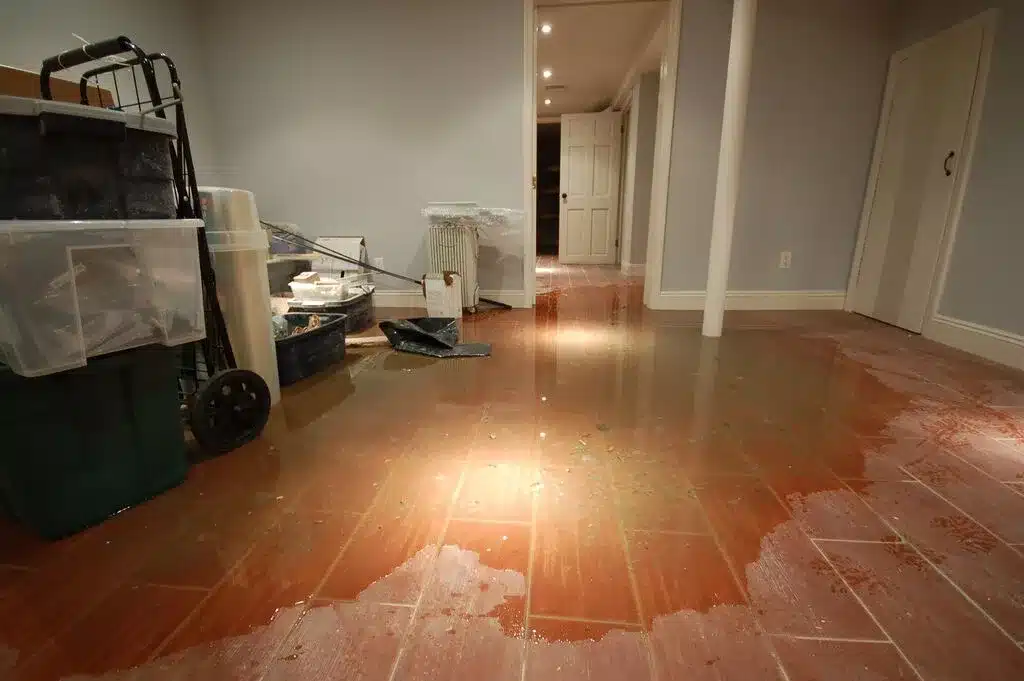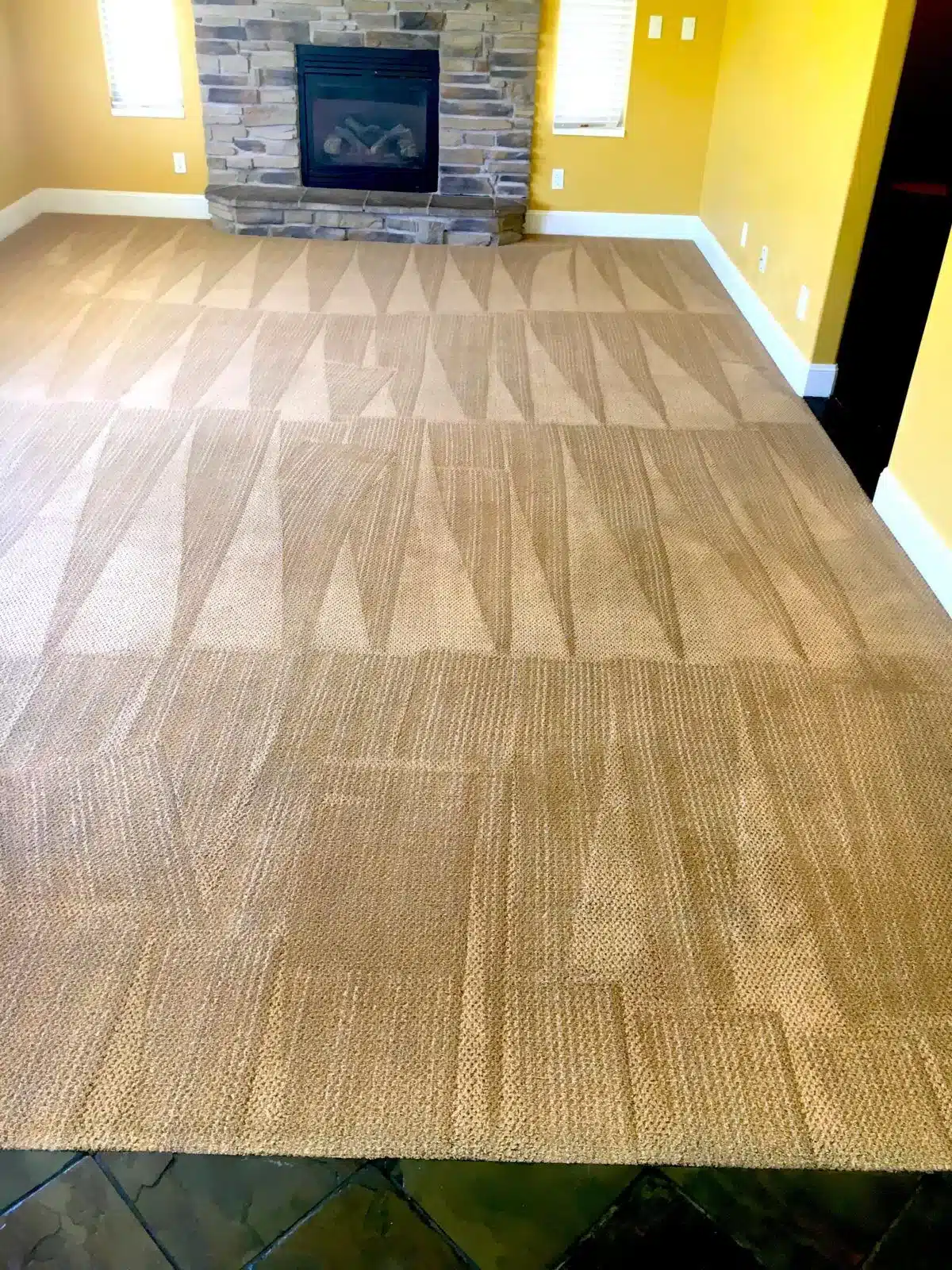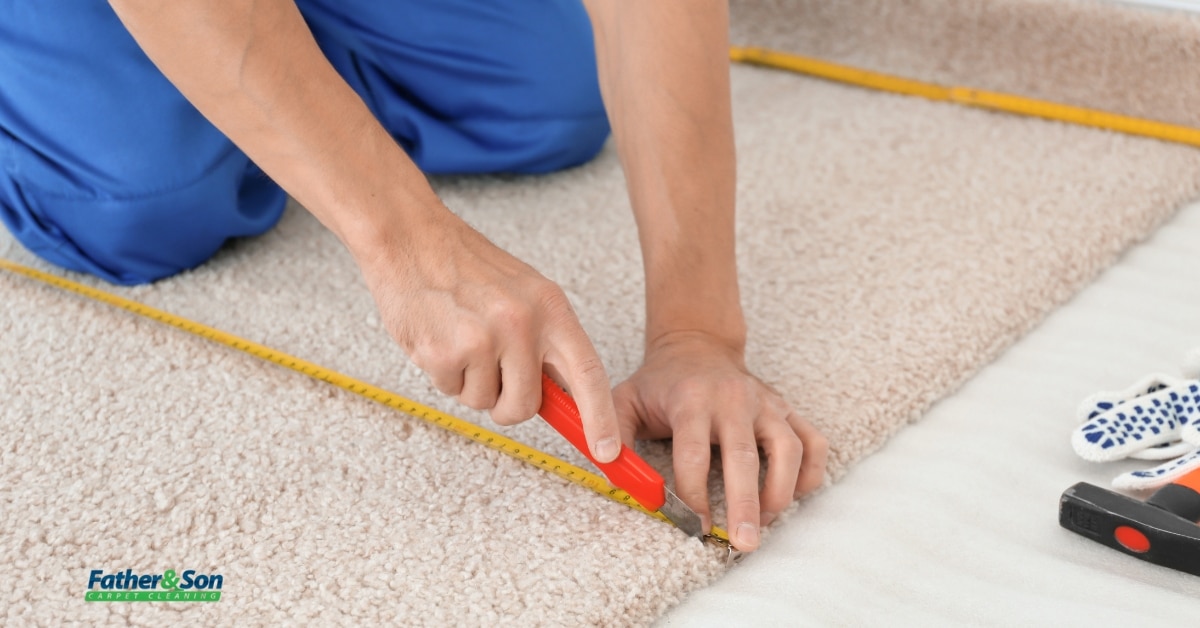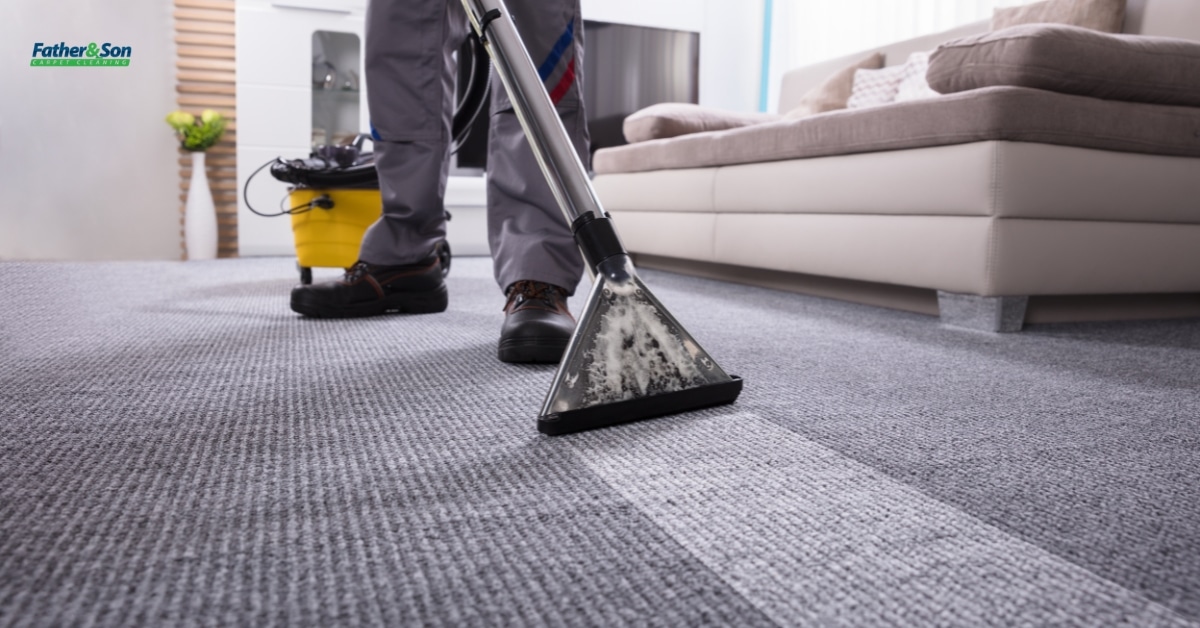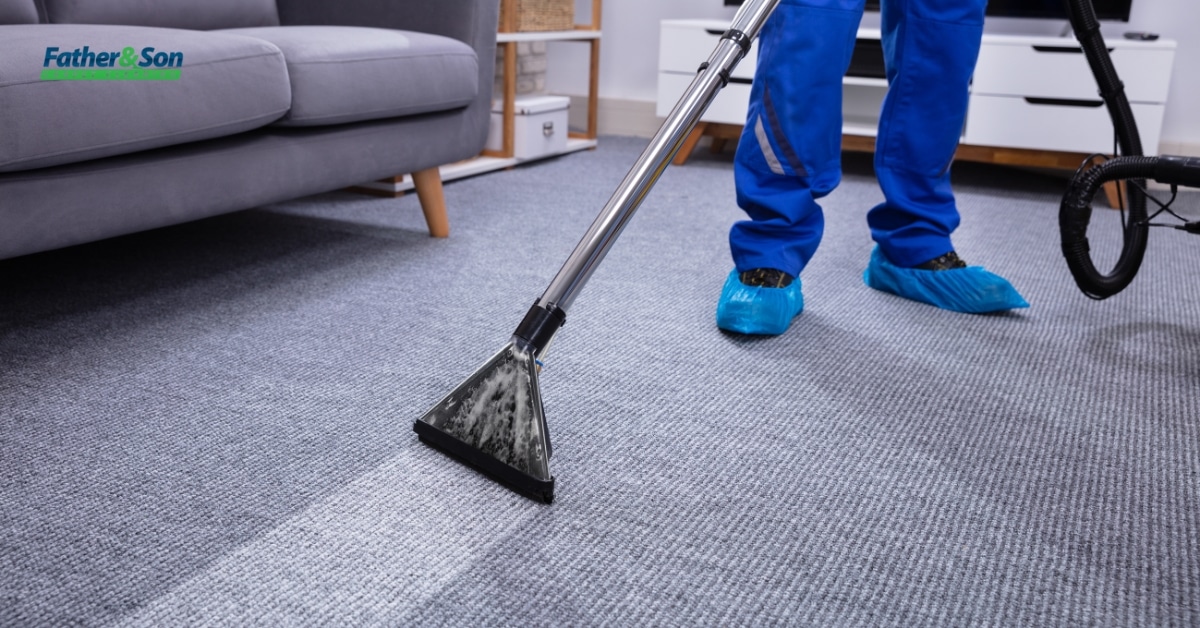Flood water extraction and disaster repair
Jump to section
Mitigation of damages
Frequently Asked Questions
Facts about Flood Water Extraction
When you experience a flood at your house or business due to rain or broken pipe or other cause, the water can wreak havoc on the structure of the building, your personal belongings are in jeopardy, the health of the inside environment can become very ill. Excessive water in your home or business will contain many contaminants and this water needs to be extracted as quickly as possible. Valuable items can get ruined, even with just an inch of water, for example carpet, carpet padding. drywall, baseboard, furniture, rugs and anything that becomes soaked for any period of time due to the flood can be permanently damaged.
After a flood, cleaning up is a long, careful and hard process.
First things first: The water must be extracted as soon as possible; this is where we can help. We can bill your insurance directly if you elect to make a claim and you have a claim number. You should call your insurance agent. If your insurance covers the damage, your agent will tell you when an adjuster will contact you. Make a detailed list of all the damage and take photos or video as repairs are made and as you clean. You’ll need complete records for insurance claims, applications for disaster assistance and income tax deductions.
Ceilings and walls- you don’t know the full extent of the damage inside your walls until drywall is removed.
Drywall acts like a sponge when wet. Remove drywall, baseboard, and paneling to at least flood level. If soaked by contaminated floodwater, drywall, insulation, carpet, carpet padding or any other items can be a health hazard and should be removed. If the drywall was soaked, then it should be removed by a professional and that professional should begin the drying process in accordance with proper standards.
Carpet and carpet padding might not be salvageable due to the flood. In virtually every flood the carpet padding must be discarded unless the water spill is small and very clean.
This is how our service can help you! We can efficiently perform water removal with our truck-mounted or portable water extraction machines at affordable rates and we can work with your budget.
Clean and dry carpet and rugs as quickly as possible. If sewage-contaminated floodwater covered your carpeting, discard it for health/safety reasons. Also discard if the carpet was under water for 24 hours or more. Dry the carpet and floor thoroughly before replacing the carpet. Padding is nearly impossible to clean so should be replaced. If the carpet can’t be removed, dry it as quickly as possible using a wet/dry vacuum and dehumidifier. Use a fan to circulate air above the carpet, and if possible, lift the carpet and ventilate with fans underneath.
- Disinfection products stop the growth of bacteria, fungi, mildew, and other harmful micro-organisms.
- Deodorization products control odors caused by excessive moisture.
Mitigation of damages in the event of flood, leak or another water intrusion.
The first thing to consider is health and safety. Do not touch contaminated black water without proper protective gear. Black water is considered water coming from the sewer system. Do not enter ponding water or pools of water due to the risk of electric shock.
The source of flooding should be dealt with appropriately if the source continues to cause water intrusion. In some cases, a call to a plumber will be necessary to turn the water off on the street. in other cases, the water intrusion has stopped and it is imperative to extract the water immediately.
All personal property and furniture should be removed from the wet areas to prevent further damage. In situations of sufficient water intrusion the carpet should be rolled back, and carpet padding should be removed and discarded. We are able to save the carpet in some situations. Most often it is necessary to remove drywall, baseboard, and insulation, and to professionally dry out the interior of the framing system. Special equipment can be used to determine the extent of wetness inside of the walls without having to dismantle the framing system.
Frequently Asked Questions Regarding Flood Water Extraction
Flood water extraction is a professional service used to remove large amounts of standing water from properties after incidents like flooding, pipe bursts or leaks. It's a crucial part of the water damage restoration process, where high-grade equipment like flood pumps and 'Gulper II' are used to quickly and efficiently remove the water, minimizing the potential damage to your property and mitigating the risk of mold growth
Professional flood water extraction is essential for safeguarding the structural integrity of your home following water damage. Left unattended, standing water can seep into the building materials, causing significant damage over time and creating a conducive environment for mold growth. A professional service ensures that all water, including what is not visible to the naked eye, is thoroughly removed, reducing further damage and health risks associated with mold.
Flood water extraction should ideally be performed as soon as possible after a flooding incident, preferably within 24-48 hours. The quicker the response, the lesser the damage to your property and the lower the risk of mold and mildew setting in.
The flood water extraction process typically involves a few key steps. First, a thorough assessment of the water damage is conducted. Next, powerful pumps and vacuums, like the flood pump, are used for the water extraction process. This is followed by dehumidification to remove excess moisture from the air and surfaces, and then cleaning and sanitization. Finally, restoration work is done to repair any damage and return the property to its pre-loss condition.
Professional flood water extraction involves using specialized equipment to remove large quantities of water quickly and efficiently. At Father and Son Carpet Cleaning, we use high-powered pumps and industrial vacuums, such as the 'Gulper II', to extract water from your property. Once the water is removed, we carry out thorough drying and dehumidification processes using high-grade dehumidifiers and air movers to ensure no moisture is left behind.
While it is possible to perform basic water extraction tasks yourself using a wet vacuum or a sump pump, a professional service is recommended for significant water damage. Professionals have the necessary training and equipment to ensure all water, including hidden moisture, is effectively removed, helping to prevent further damage and potential mold growth.
High-grade equipment such as flood pumps, industrial vacuums like the 'Gulper II', dehumidifiers, powerful fans, and moisture detectors are typically used in a professional flood water extraction process. These tools ensure a thorough job, extracting water quickly and efficiently, and promoting rapid drying of the property.
The length of the flood water extraction process depends on the extent of water damage, the size of the property, and the amount of water present. A small space with minor flooding may only take a few hours, while a larger property with significant water damage could take several days.
Flood water extraction is a crucial first step in the restoration process. However, in most cases, further steps like cleaning, sanitation, drying, and dehumidification, and potentially repair and reconstruction, are necessary to fully restore your home to its pre-loss state. At Father and Son Carpet Cleaning, we offer a comprehensive range of services to ensure complete restoration after flooding.
Professional flood water extraction has several benefits. It helps to minimize water damage to your property, prevent mold growth, protect your belongings, and reduce health risks associated with standing water. It also saves you time and effort, as the process can be laborious and time-consuming without the right equipment and expertise.
Yes, prompt and professional flood water extraction can significantly help prevent mold growth. By quickly removing the water and moisture, the conditions that molds need to thrive are eliminated. This is followed by dehumidification and drying processes that further ensure a mold-unfriendly environment.
The cost of professional flood water extraction can vary, depending on factors like the extent of the water damage, the size of the area that needs to be serviced, and whether additional services like dehumidification or mold remediation are required. At Father and Son Carpet Cleaning, we offer competitive pricing and transparent quotes to ensure you understand what you're paying for.
When looking for a flood water extraction service, consider factors such as experience, services offered, equipment used, response time, customer reviews, and pricing. It's also important that the provider is licensed and insured. Father and Son Carpet Cleaning meets all these criteria, offering experienced and comprehensive services for your water damage needs.
Professional flood water extraction is generally safe for most types of flooring. The extraction process is designed to remove water as quickly and efficiently as possible to minimize damage. Any possible risks or complications will be assessed by the professional team prior to the extraction process.
Coverage for flood water extraction can depend on your specific insurance policy. Many insurance policies do cover water damage restoration, which includes water extraction, but it's always best to check with your insurance provider to understand the specifics of your coverage.
- Flood water extraction is the process of removing water from a property that has been affected by a flood or water damage.
- It is important to extract flood water as quickly as possible to prevent further damage to the property and to minimize the risk of mold growth.
- Professional flood water extraction companies have specialized equipment and expertise to efficiently remove water from a property.
- The extraction process typically involves using pumps, vacuums, and other tools to remove standing water from the affected area.
- After the water is extracted, the property should be thoroughly dried and dehumidified to prevent moisture-related issues.
- Flood water extraction should be done by trained professionals to ensure the safety of the property and its occupants.
- It is important to document the flood water extraction process for insurance purposes and to provide evidence of the damage caused by the flood.
- Regular maintenance and inspections of the property’s drainage systems can help prevent flooding and the need for flood water extraction.
At Father and Son Carpet Cleaning we pride ourselves on providing the best Utah carpet cleaning and carpet repair services for the right price. As a result of our dedication to being efficient, economic and expert service, the great majority of our business comes from client referrals. We clean carpet the way carpet manufacturers want it done. Our standards meet the requirements of your warranty for your carpet and go above and beyond the standards in the industry
Latest posts by Father and Son Carpet Cleaning
(see all)

